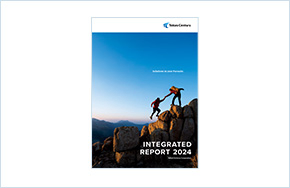Enhancing Support for Balancing Work and Private Life
Tokyo Century has enhanced the support we provide for balancing work and private life so that every employee can work flexibly as appropriate to their life circumstances.
- Promotion of Work-Life Balance
- Tokyo Century Held a Family Day
- Tokyo Century Held “Dads & Moms Lunch Community”
- Encouraging Men to Take Childcare Leave
Promotion of Work-Life Balance
Tokyo Century promotes the creation of a workplace environment where employees can balance their work and private life by actively supporting employees who give birth and engage in childcare and nursing.
Main Support Systems for Balancing Work and Private Life
Scrollable horizontally
| System | Period | |
|---|---|---|
| Childbirth/childcare | Pre-childbirth leave | Six weeks prior to childbirth |
| Post-childbirth leave | Eight weeks after childbirth | |
| Childbirth leave for fathers | Four weeks within the first eight weeks after childbirth | |
| Childcare leave | Until the child reaches the age of two years and six months | |
| Special leave to visit a hospital, such as for physical examinations | Until one year after pregnancy and childbirth (only days required) | |
| Special leave for childbirth by a partner | One month prior to childbirth until two weeks after childbirth (five days in total) | |
| Leave for nursing and other specific reasons | Until the end of the third year of elementary school (up to five days per year per child; leaves may be taken in full-day, half-day, or hourly increments) | |
| Exemption from overtime | Until the child starts elementary school | |
| Moving up the work start/end time | Until the sixth year of elementary school (up to two hours) | |
| Moving down the work start/end time | Until the sixth year of elementary school (up to two hours) | |
| Shortened work hours | Until the sixth year of elementary school (up to 75- minute reduction) | |
| Nursing | Family care leave | Up to one year in total (the number of applications is not limited) |
| Nursing leave | Up to five days per family member who is under care, up to ten days per year if there are two or more family members who are under care (leaves may be taken in full-day, half-day, or hourly increments; paid leaves) | |
| Exemption from overtime | Until the care for the family member ends | |
| Moving up the work start/end time | Three years from the start date (up to two hours, but the number of applications is not limited) |
|
| Moving down the work start/end time | Three years from the start date (up to two hours, but the number of applications is not limited) |
|
| Shortened work hours | Three years from the start date (up to two hours, but the number of applications is not limited) |
|
Tokyo Century Held a Family Day
Tokyo Century held its “Family Day,” inviting employees’ children to their parents’ workplace. The event aimed to increase employee motivation, enhance corporate social responsibility initiatives, and promote work-life balance.
As part of the activity, elementary school children exchanged their business cards, which were specially made for this event, with their parents’ colleagues and even with the president. Through workshops and workplace tours, the children gained an in-depth understanding of their parents’ work.
Tokyo Century Family Day
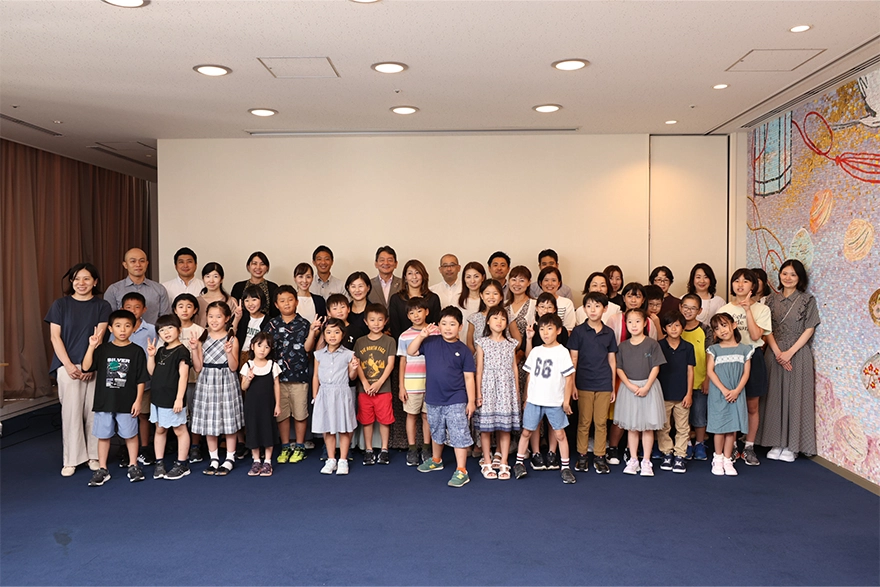
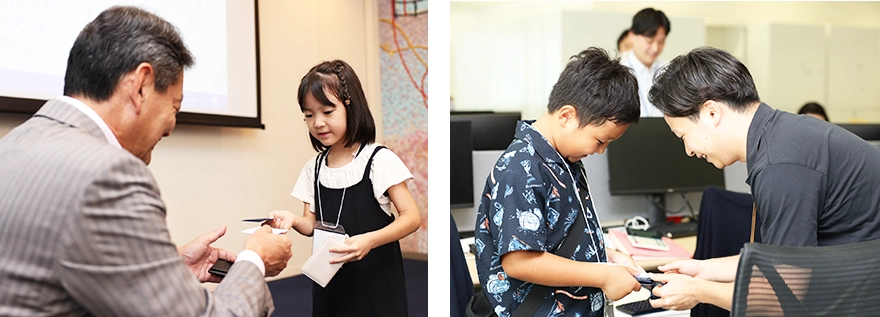
And check out the interviews with participating families and planning staff in the Tokyo Century News article entitled “Family Day 2023 Held First Time in Four Years —Employees Encouraged by Family Ties and Understanding of Their Work.”
Tokyo Century Held “Dads & Moms Lunch Community”
At Tokyo Century, we organize periodical lunch roundtable discussions for parent employees to network among them to exchange information on managing work-life balance, including childcare and others, as part of our support for parent employees with childcare.
At the Roundtable Discussion of Dads & Moms Lunch Community
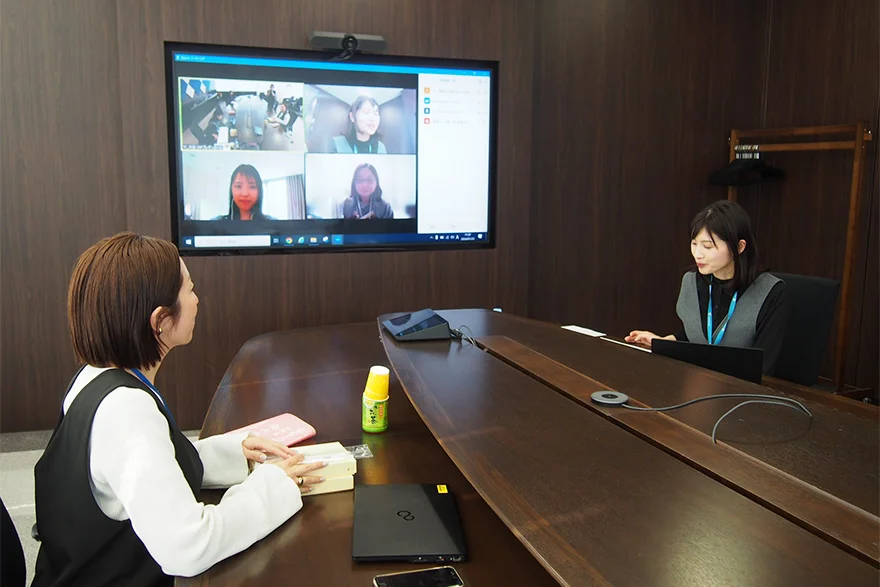
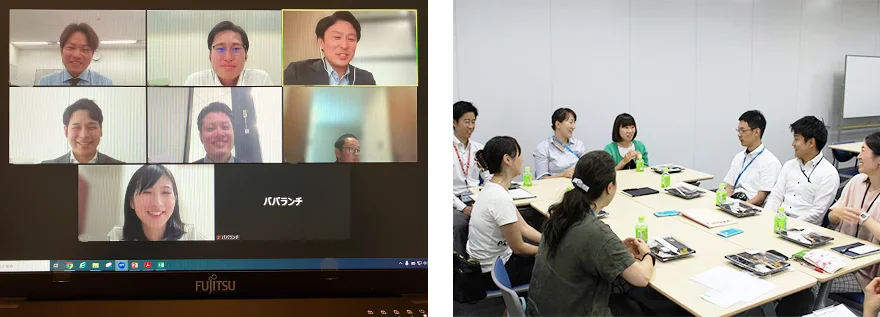
Encouraging Men to Take Childcare Leave
Aiming to create a work environment which makes it easy to take childcare leave, Tokyo Century uses in-house magazines and other means to present men employees who have taken childcare leave and their superiors.
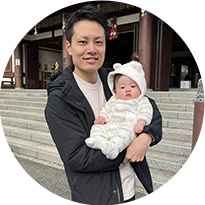
Daiki Iwata
Q: When did you take your childcare leave?
It started about four weeks after my child was born, as my mother-in-law had stayed with us to support my wife in the first three weeks.
Q: What did you do during the leave?
With my wife, I did the housework and the various responsibilities that go along with childcare, like changing diapers, bathing, feeding and putting our son to bed, or taking him for walks in the stroller. I ran the errands, such as doing the shopping when our child was under a month old, as my wife took care of her health at home. So that she could get sufficient rest during my childcare leave, I got up with the baby when he cried at night.
Q: How have you changed since the leave?
I now realize how hard taking care of a baby actually is. I’ve also become more grateful for the support of my wife and others around me. Being able to spend a long time with my son allowed me to gain a stronger sense of parental responsibility while growing my love for our child. What’s more, my wife and I could watch and together enjoy all the little ways he changed day by day, so the leave was a real benefit to our relationship, too. As for work, while my absence placed some pressure on coworkers, they supported me, which motivated me to work harder when I returned to the office.
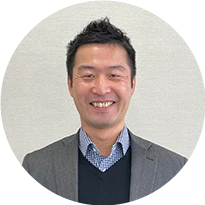
Yuichi Tashiro, Supervisor
Q: What did you say to Mr. Iwata before he stared his childcare leave?
I suggested that he focus on childcare during that very precious time with a newborn baby.
Q: How will you support him in the future?
Raising a child is a lot of work, and something he and his wife must do as a team. I’d like to offer my support over the long term so that he maintains a healthy work-life balance and enjoys both work and raising a family.

